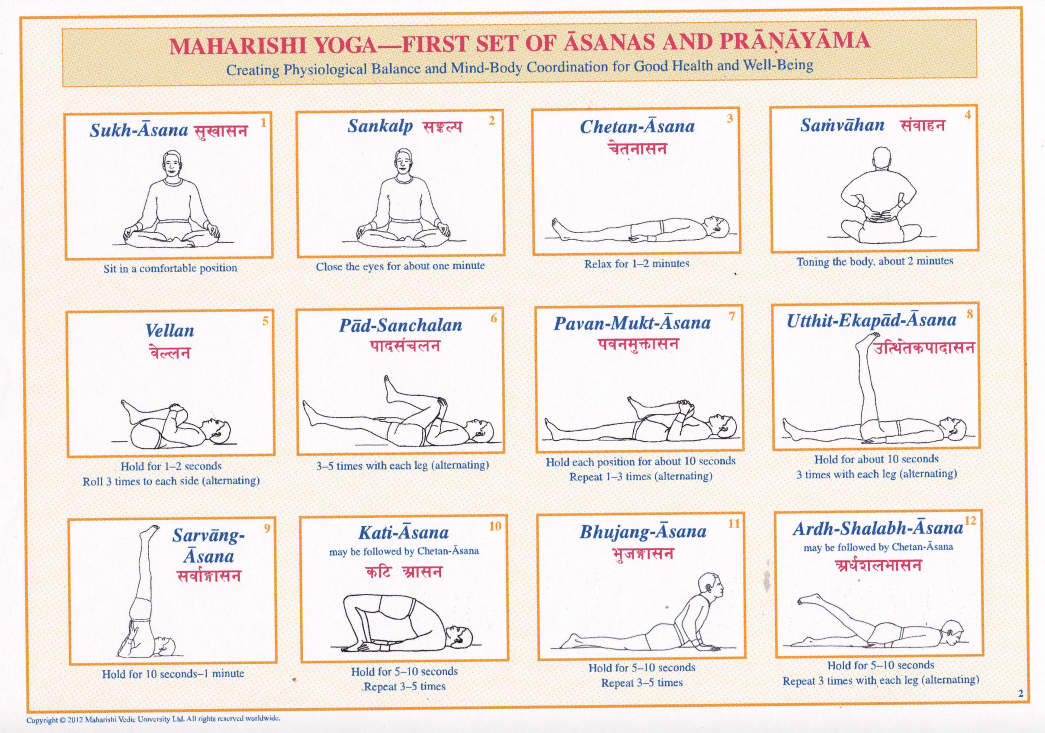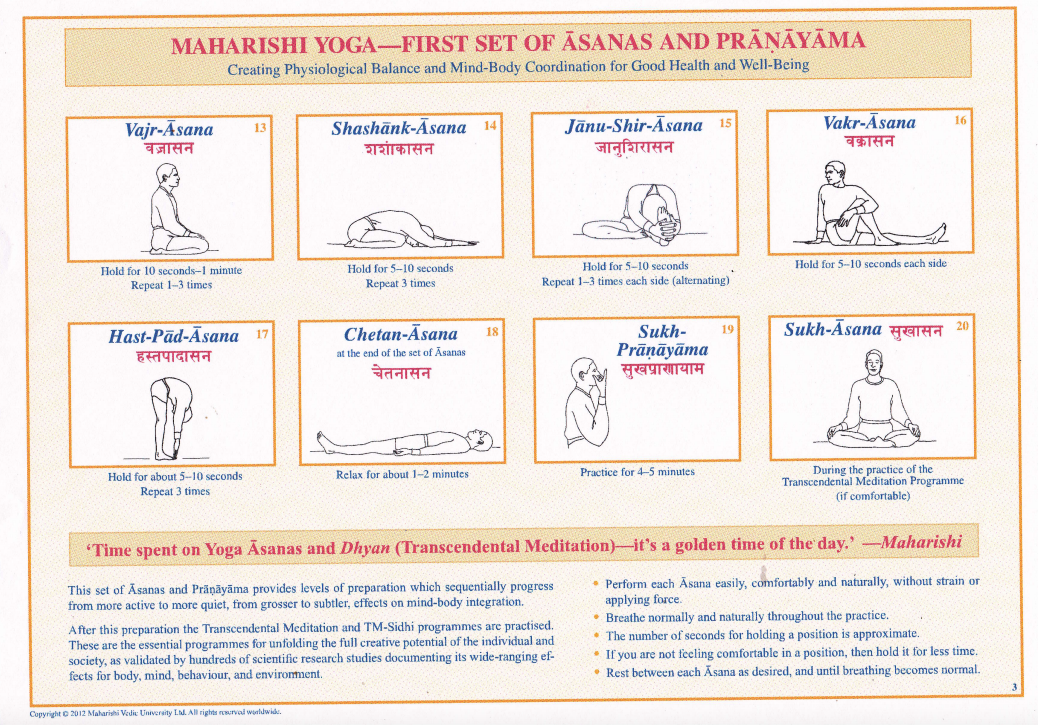By Emma Hanson, English Literature MA
The Croft // In the second of our series of write-ups on Transcendental Meditation Society's recent webinar series ‘360 Degree Wellbeing for Bristol and Bath Students’, Emma explores the importance of yoga for a healthy and balanced life.
Jonny Velon, an artist and musician based in Bristol with a passion for meditation and yoga, led this part of the wellbeing series.
He discussed how yoga practices have transformed his life:
‘The 18 yoga asanas that I was taught by my transcendental meditation teachers, Patrice Gladwin and James Miles, have benefitted me in so many ways. Essentially, I now have a go-to set of exercises that instantly leave me feeling refreshed, rested and revitalised.
‘I don't have to rely on anyone to help me do them and I don't have to go anywhere! I just lay down my blanket on some floor-space and 15 minutes later I am restored or ready for a nap. I do these exercises every morning and occasionally in the late afternoon also and my overall health has hugely benefited. Here are some of the noticeable benefits:
‘I am flexible again: more flexible now than when I was at university! I rarely get ill. My mood is much more consistent than it used to be, and my concentration is better. My daily meditations are deeper.

‘It helps me get back to sleep if I wake too early at night and also to get ready for sleep after a performance or a late night.
‘My digestion is better. I am well-toned all over my body, and I am stronger.
‘The asanas are usually taught in conjunction with transcendental meditation, a simple, ancient meditation technique. If one can do both daily, as I have for nine years now, health problems gradually disappear completely and one's body actually starts to get younger.
‘Sounds unbelievable I know, but it's true. I regularly get mistaken for being in my mid-twenties but I shall turn 40 next year! I would say this was the other way around during times when I was at university and a post-grad!
It is human nature – particularly student nature – to rush activities through to the end but being fully in the moment can give us the full benefits
‘There are hundreds of published scientific papers showing how practising transcendental meditation improves brain coherence and many other aspects of the human body. These yoga asanas are designed to be done as a one-two with the meditation happening straight after the yoga. However, the yoga sequence can be done as a stand-alone set of exercises.’
The Yoga Asana Sequence
During the webinar, Jonny talked us through the 18 yoga asanas he was taught. The word ‘asana’ is a Sanskrit word which translates to mean ‘posture’ or ‘pose’, so while it sounds a bit daunting, this is a sequence of simple poses which can bring us numerous physical and mental benefits.


‘It only requires 10 or 15 minutes of your time, and is best done right after waking up, as a great way to start the day. Hold each pose for five seconds, with a five-second break between each move.’
Jonny said the moves must be done with a ‘pleasant steadiness’; it is human nature – particularly student nature – to rush activities through to the end but paying attention to the details and being fully in the moment can give us the full benefits.
Yoga for Physical and Mental Wellbeing
This sequence is a way to relax and come out of your mind. As students, a quick routine to relax and de-stress is always welcome, but during an especially turbulent time, this is even more vital to our wellbeing.
Wellbeing webinar: the importance of sleep in students' lives
The Stress Melt: exercise does not require a 'good body'
Jonny attested to the power of yoga saying that ‘yoga asanas can be as good as, or better than a short walk’ as they improve flexibility and blood flow. They give your mind and body a break from the stresses of everyday life, and during lockdown, this is particularly vital to find ways to stay healthy and happy at home.
Stay tuned in the coming weeks for more information about transcendental meditation, led by James Miles, and for my next article on Ayurvedic food principles.
Featured image: Epigram / Robin Ireland









